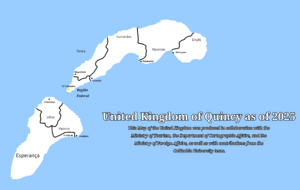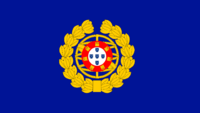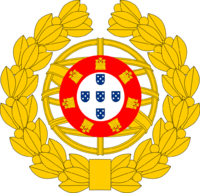Quincy: Difference between revisions
No edit summary |
|||
| Line 84: | Line 84: | ||
|area_km2 = 374,765.01 <!--Major area size (in square km)--> | |area_km2 = 374,765.01 <!--Major area size (in square km)--> | ||
|percent_water = | |percent_water = | ||
|population_estimate = | |population_estimate = 197 million | ||
|population_estimate_rank = | |population_estimate_rank = 7th | ||
|population_estimate_year = | |population_estimate_year = 2025 | ||
|population_census = | |population_census = 345 million | ||
|population_census_year = | |population_census_year = 2020 | ||
|population_census = | |population_census = 19.45 million | ||
|population_census_year = 1790 | |population_census_year = 1790 | ||
|population_density_km2 = 43 | |population_density_km2 = 43 | ||
Revision as of 12:47, 9 August 2024
This article is incomplete because it is pending further input from participants, or it is a work-in-progress by one author. Please comment on this article's talk page to share your input, comments and questions. Note: To contribute to this article, you may need to seek help from the author(s) of this page. |
From IIWiki, the Modern and Future-Tech SimFic Encyclopedia.
"Quincy", "United States of Quincy", and "USQ" all redirect here. For further uses, see Quincy (disambiguation)
| Message from The United States Federal Government: This article is undergoing heavy revisions and construction, please be patient as I add details to the page. It may take me some time to compile everything. |
The United States of Quincy États-unis de Quincey (French) | |
|---|---|
| Motto: In Deo Speramus (In God we Trust) | |
| Anthem: Battle Hymn of the Republic | |
 Map of the United States of Quincy as of 2036 | |
| Status | Sovereign State |
| Capital | Denver Emergency Capital 39.7392° N, 104.9903° W |
| Largest city | Denver |
| Official languages | English |
| Recognised national languages | Spanish, French, Russian |
| Recognised regional languages | Inuit, Navajo, Comanche, Choctaw, and others |
| Ethnic groups | Quincois, Quebecois, Canadian, Haudenosaunee, etc |
| Demonym(s) | Quincois |
| Government | Federal Republic |
• President | Arnold Landon |
• Vice President | Mary Sakura |
• Speaker of the House | Miranda Huron |
• Chief Justice | Tim Gerald |
| Legislature | Congress of the United States of Quincy (Congress) |
| Senate | |
| House of Representatives | |
| Independence from the United States of America | |
• Independence and dissolution of the United States of America | July 2nd, 1786 |
• Quinque-Publica Pax | 1796-1860 |
• Continental War | 1860-1865 |
• First Quintus Postbellum | 1865-1916 |
• World War I involvement | 1916-1918 |
• Second Quintus Postbellum | 1919-1931 |
• Jacques Street Crash | October 25th-December 15th, 1931 |
• August 17th Bombings | August 17th, 1940 |
• Entry into World War II | August 17th, 1940, 9:30 A.M. Eastern Standard Time |
• Cold War | 1945-1990 |
• Reclassification to United States | September 29, 2033 |
| Area | |
• Total | 374,765.01 km2 (144,697.58 sq mi) (83rd) |
| Population | |
• 2025 estimate | 197 million (7th) |
• 1790 census | 19.45 million |
• Density | 43/km2 (111.4/sq mi) |
| GDP (nominal) | 2030 estimate |
• Total | $937 billion |
• Per capita | $13,294 |
| Gini | 13.245 low (98) |
| HDI | 0.985 very high (5) |
| Currency | Quincois Credit |
| Time zone | UTC -05:00/Eastern Standard Time |
| Date format | mm/dd/yyyy |
| Driving side | right (side of road) |
Quincy (/ˈkwɪnzi/KWIN-zee), officially the United States of Quincy (French: États-unis de Quincey), is a nation comprised of 13 states in New England. It is bordered to the west by Ontario and Ohio, to the south by Maryland, and to the east by the Atlantic Ocean.
Etymology
It is unknown exactly where the name Quincy originated, but the most commonly and historically accepted origin is that it comes from the former French North American colony of Quincey, an archaic form of the word. The area applied to the word, however, has shifted much more southwards than it originally was intended, as it once meant the area around Montreal and Quebec City, whereas post-Revolutionary War it was applied to Vermont, New Hampshire, Massachusetts, and Rhodes. The word fell out of use from 1763-1785, but it picked up relevance again that year and was adopted as the name of the now world-renowned United States of Quincy.
Theories Around Its Original Meaning
Quincy as a name originates in the Latin term "Quintus", or Fifth-Born. The connection to this meaning is rather hotly debated among Quincois etymologists, but no concrete or overall opinion exists as to how the connection could play into any majorly significant meaning. Despite this, some persist with theories, a few of which, delve into more conspiratorial elements.
Conspiracies
There are two very well known conspiracies that have circulated around the origin of the name of Quincy, one being that the name originates from a Viking name, "Fimmtibarn", or Fifth-born, a literal translation of the name of Quincy from Latin. This suggestion has, however, received no genuine trend since the mid-1800s, as it lacks virtually any holding in historical truth.
The second theory, however, has a much higher number of proponents. The theory goes that, during the Crusades, Emperor Henry VI (April 14 1191-September 28 1197) of the Holy Roman Empire, in a conversation with his advisors, spoke the words "Vunf naht, vunf naht har din geben tau werdan." ("Five nights, five nights you have to [be] born."), of which many attribute the portmanteau Vunfwerdan as an incredibly early form of the word Quincy. However, in recent years, fact checks and genuine delves into historical records of Henry VI have turned up nothing of this quote ever having been attributed to him.
History
UNDERGOING EXTREME REVISIONS TO FIT NEW LORE
Geography
Quincy is a country with many natural barriers, including its several mountain chains. Flanked by the Appalachian, White, Adirondacks, Green, and Berkshire Mountain chains, Quincy is virtually completely protected from most threats. Containing much of the Connecticut and Hudson Rivers, this has facilitated much trade with external neighbours and allowed Quincy to grow into a large importer and exporter. The tallest point in Quincy is Mount Washington, sitting at 6,288.2 feet, with its lowest point at sea level.
The climate of Quincy can be described by many as mild, cold, and even hot at times. While all these are true, they vary from region to region. For much of the year, Quincy is covered in cold weather, only letting up from June to August, before going cold again. In the colder months, specifically October to February, is when it becomes the coldest. With the colder climate, Quincy often year round keeps jackets and cold attire readily on display, but at times this has been challenged with changing world climates. As an extra piece of knowledge, in 1885, the coldest temperature in Quincois history was recorded on December 26th, at a record breaking -13°F.
The environment of Quincy is a unique place, in that the area is almost in totality covered by snow and cold weather. However, this has not stopped local life from thriving. Quincy's national animal, the North American Brown Bear [Often shortened to just "Bear" by the Quincois], is quite a frequent sight, alongside many other animals such as caribou (infrequently), snakes, and many, many others.
Demographics
Population
Quincy is a very diverse country, with many cultures having blended to form the Quincois people. Roughly 63.2% of the population identify as ethnically Quincois, 22.1% identifying as Quebecois, 12.5% as Native American, and the remaining 2.2% other groups.
Language
Quincy's languages can be described as mostly bilingual, with English and French being the most popular. Approximately 96% of the population speaks English as a primary language, with another 3% speaking French as their primary, but of this percentage, roughly 75% of the Quincois population is bilingual, with another 5% being trilingual or polyglot, as the remaining 1% of the population speaks primarily Haudenosaunee along with many other languages worldwide.
Religion
With its religious freedom, the Quincois populace practices a multitude of religions. At the highest percentage at 50%, is, in fact; irreligious. Followed closely at 35% is Christianity, with 30% of the percentage being Protestant with the remaining 5% split between Orthodox, Catholic, and so on. At 10%, Islam comes in a close third, with the remaining 5% of the population practicing a manner of many religions, from Buddhism to Shintoism to Zoroastrianism.
Race
With Quincy's history, it's ethnic makeup can largely be traced back to the English and French, with roughly 80% of the population claiming British, or more specifically Irish, English, and Scottish origins, with slight Welsh origin as well. 10% of the population claims to be of French origin, another 6% claims Haudenosaunee or other Native American origin, and the remaining 4% claim origin from other nations across the world, including from Asia, Africa, and the Middle East.
Largest Cities (WIP)
| Rank | State | Pop. | |||||||
|---|---|---|---|---|---|---|---|---|---|
| 1 | Denver | Colorado | 3,156,250 | ||||||
| 2 | Nouvelle Orleans | Louisiane | 2,111,000 | ||||||
| 3 | TBA | TBA | TBA | ||||||
| 4 | [[]] | [[]] | |||||||
| 5 | [[]] | [[]] | |||||||
| 6 | [[]] | [[]] | |||||||
| 7 | [[]] | [[]] | |||||||
| 8 | [[]] | [[]] | |||||||
| 9 | [[]] | [[]] | |||||||
| 10 | [[]] | [[]] | |||||||
Government
Quincy, as prescribed in law, is a federal republic. Being a federal state, it comprises of 13 administrative divisions, them being states. These states are Massachusetts, Rhodes, Connecticut, Maine, Vermont, New Hampshire, New York, South Quebec, North Quebec, Newfoundland and Labrador, Pennsylvania, New Jersey, and Nova Scotia.
The government of Quincy is divided into three distinct branches, them being the Executive, Legislative, and Judicial branches. They are as follows;
— Executive: The President; head of and commander-in-chief of the Armed Forces, has authority to veto laws from Congress and can issue executive orders. Has authority to declare wars and sign peace treaties. Headed in 86 Liberty Street, Hancock FC. Can appoint Supreme Court judges. Elected every four years; can serve two terms.
— Legislative: Congress; creates and votes on laws. Has authority to form alliances and overrule presidential vetoes with a 2/3rds majority in both houses. Bicameral; split into the Senate and House of Representatives. Senate has 100 members, House has 250; based on the current population this can fluctuate. Elected every three years in the Senate, elected every two years in the House. Both have limits of two terms. Typically, Congress is divided between the four main political parties in a system known as "tetrapartisanism."
— Judicial: Supreme Court; interprets and declares laws unconstitutional. Can declare a Judicial appointment via the President unlawful/and or unconstitutional. Justices are elected every five years; the longest of any branch. Chief Justice is appointed by a direct democratic vote, with the vote for an individual directly translating to it.
Tetrapartisanism
Tetrapartisanism is a term coined in 2005 to describe Quincy's four-party system, consisting of the Progressive Party, the Democratic-Republican Party, the United Party, and the Liberal Party. These four parties all work virtually in sync with each other, with the Progressives and D-Rs often coalitioning and UP and LP coalitioning as well to gain a majority, though there have been times where one party or another has managed a solid majority, including in 1960 and 1968, among many more.
Military
Quincy is a permanent member of GESEC, or the Global Entente Security Council, with its power and influence stretching worldwide. Quincy also holds the Treaty on Northern Massachusetts, a document passed in 1795, which declared an eternal friendship between itself and Canada, but this deal has been considered for revising due to the dissolution of Canada's government into Ontario. Other than this, Quincy holds positive ties to most nations apart from Texas due to its militaristic outlook.
The Quincois Armed Forces, officially known as the Quincois Self-Defense Forces, consisting of the Quincois Army, Marine Corps, Air Force, Navy, Coast Guard, and Space Defense Force, consisting of approximately 150,000 total forces, is Quincy's main bulwark of protection against foreign threats if it should ever need to use it. Quincy also has in its possession approximately 150 nuclear weapons as part of the Conflict Reduction Clause of the Global Entente General Charter, which declared that any military action upon any Global Entente member would result in atomic response. Quincy has been considering remilitarizing with the threat of global enemies like the Second Russian Republic, Texas, and the Republic of China.
Culture
Quincois culture can be described as resembling a mix of French, Canadian, and British influences, combining many pieces and parts together to forge itself. This has been reflected in Quincy's libertarian and democratic government and system, which has proved to be a vital contributor to the country's success.
The Quincois people are best described as a stern but hard-working people, while also being friendly once you get to know them. Similarly, the Quincois are also a very determined people if they put their minds to something, and also seem to share a collective mind that is in favour of many issues that normally plague other nations, such as abortion and LGBTQIA+ rights.
Infrastructure
Much of the transportation sector of Quincy is publicly owned, including bus, train, and subway. In the automotive sector, the industry is heavily government regulated, but otherwise is privately owned. Industries like mining and artificial oil are incredulously profitable to Quincy, but hefty restrictions have, despite their privatised ownership, been placed on them.
Energy
Quincy runs roughly 90% of its power grid off of a combination of hydroelectric and natural wind energy, with the vast remainder concentrated in artificial oil. Other than this, Quincy also has power grids that it shares with Canada, the Haudenosaunee Confederation, and Connecticut.


